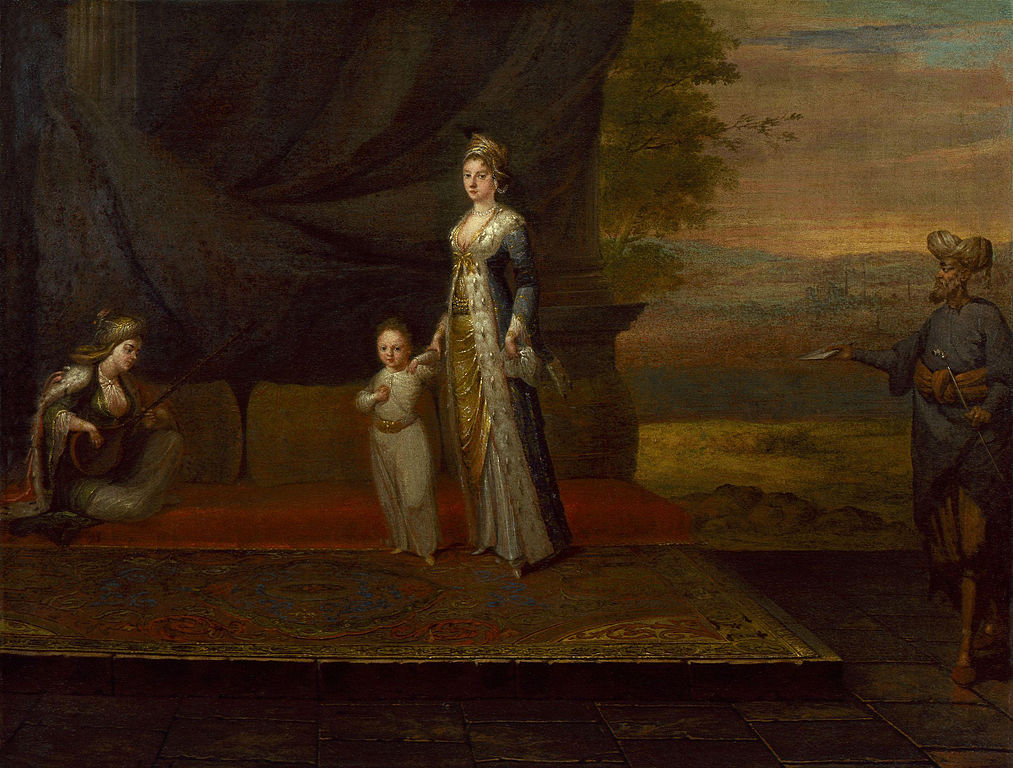How Lady Mary Wortley Montagu’s experience with small pox made her a philanthropist as well as being notable for her writing and wit.
Lady Mary Wortley Montagu showed many faces to eighteenth-century European aristocracy: an epistolary genius, whose letters from Turkey introduced many to the Muslim world; a divorcée who was pursued by Alexander Pope and other leading men of her day; and great beauty whose looks were ruined by small pox.
It was her experience with small pox that made her a philanthropist as well as notable for her writing and wit.
While she was living in Turkey, she learnt of how Turkish children were exposed to the pus from a small pox blister and seemingly inoculated against the disease, a practice she termed “engrafting.” She was so impressed by this Turkish practice that she allowed her five-year-old son to be “engrafted” with small pox and she championed the practice upon her return to London, only to find that Oxford- and Cambridge-educated physicians resisted this foreign technique.
When small pox broke out in England in 1821, Lady Mary allowed her own four-year-old daughter to be “engrafted” with small pox by a physician who had been at the British Embassy during her years in Turkey in the presence of the London court physicians, and she wrote anonymously to promote the practice. She also used her influence at court to arrange for an offer to six condemned criminals to be pardoned in exchange for agreeing to be exposed to small pox; all accepted the offer and survived their exposure to the disease. The next year, King George I allowed his grandchildren to be inoculated, setting an example for the court and country.
Lady Mary’s philanthropic example—and it surely took courage to expose her young son and daughter to small pox, even after her observations of the success of “engrafting” in Turkey—and her public advocacy for vaccination is needed today, when we are facing preventable outbreaks of disease in the United States.
This winter has seen outbreaks of measles in New York and California—and also an outbreak of mumps in Ohio centered on the Ohio State University campus. A few of these cases are children too young to be vaccinated, but the greater number are those whose parents made a deliberate decision not to vaccinate their children.
Why? Stories persist that link vaccines to autism, in spite of the great public and individual benefits of vaccines and the lack of correlation between vaccines and autism.
These stories are given credence by celebrities who grab headlines by saying they won’t have their children vaccinated—such as reality TV star Kristin Cavallari and ABC The View co-host Jenny McCarthy.
Now, it’s a bit of a mystery to me why other mothers would take their cues from a former Playmate of the Year like McCarthy, but these prominent endorsements by “anti-vaxxers” contribute to decisions not to vaccinate children, which leads to these needless outbreaks of serious disease.
We need counterexamples to Cavallari and McCarthy—new Lady Marys—who will make the case for vaccination to parents on the fence about this decision. And, indeed, vaccination is so safe today that it doesn’t require the courage of Lady Mary. Surely some movie star, some governor, some business leader, is ready to do more to set this example?






